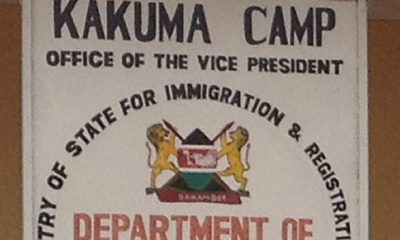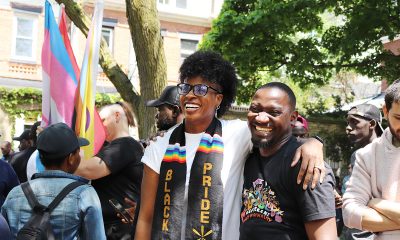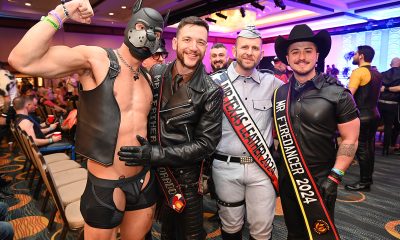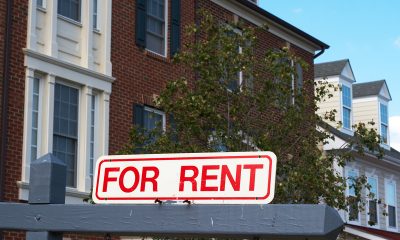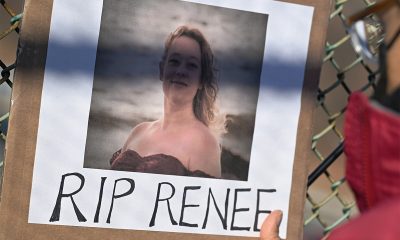South Sudan
The forgotten struggle: LGBTQ refugees and asylum seekers in South Sudan
June 20 is World Refugee Day

As the world prepares to mark World Refugee Day on June 20, discussions will echo across continents about war, displacement, and humanitarian assistance. But there is one story that is often left out — a story of a people who are doubly displaced, constantly under threat, and too often excluded from protection programs. We are the LGBTQ+ refugees and asylum seekers living in South Sudan, particularly in Gorom Refugee Settlement, and our daily struggle for survival continues in silence, far from global headlines and political promises.
We are refugees who fled our homes in Uganda, Rwanda, Burundi, the Democratic Republic of Congo, Ethiopia, and Sudan — countries where being lesbian, gay, bisexual, transgender, or queer means being hunted by the state, persecuted by society, and disowned by our own families. Many of us first found temporary safety in Kenya, only to be forced to flee once more as hostility and violence found us even there. We ended up in South Sudan, believing it might be safer. But we were wrong.
What we have experienced is a relentless cycle of flight and fear. We are tired of running, tired of hiding, and tired of being treated like we do not exist.
Fleeing persecution, only to face more
The reasons we fled our home countries are all rooted in systemic hate: we were accused of witchcraft, imprisoned for who we love, subjected to forced “conversions” or exorcisms, and physically assaulted by family members and neighbors alike.
Lesbian women in Uganda and Rwanda were forced into marriages with men, some even raped by their own relatives to “cure” them. Gay men in Burundi and Congo were arrested, tortured, and publicly humiliated. Transgender individuals in Ethiopia were stripped of all dignity, mocked in the streets, denied medical treatment, and in some cases beaten to the point of unconsciousness. Bisexual youth were disowned and kicked out of their homes. And queer children — or children simply perceived as different — were molested, assaulted, or abandoned.
We thought Kenya might provide refuge. For a while, it did. But soon, even the refugee camps in Kenya became unsafe. Attacks on LGBTQ+ individuals increased. Some of us were sexually assaulted inside UNHCR facilities. Local authorities turned a blind eye. The Kenyan government ultimately declared it would no longer support resettlement for LGBTQ+ asylum seekers. And so, once again, we fled.
This time, we crossed into South Sudan. And again, we hoped for safety. But at Gorom Refugee Settlement, we found yet another kind of danger — one that is quieter, colder, and just as cruel.
What life looks like in Gorom: constant threat and no protection
At Gorom, we face daily verbal abuse, physical violence, economic isolation, and state indifference. LGBTQ+ refugees are attacked by fellow refugees and members of the local host community. In some cases, we are targeted by our own block leaders, who refuse to distribute food or health services if they suspect we are queer. In clinics, trans women are mocked, told they are “possessed,” and denied even basic medical care. Those of us living with HIV face layers of stigma — our sexual orientation is blamed for our condition, and we are often left without access to lifesaving medication.
Safe housing for LGBTQ+ refugees does not exist in Gorom. Couples are forced to pretend to be siblings or risk being separated — or worse. One gay couple was recently threatened by men in their block who accused them of “bringing demons.” They have not slept in the same shelter since.
Lesbian sisters, sharing a small shelter to survive, told us:
“We sleep in turns at night — one keeps watch while the other rests. We’ve been threatened with rape three times. Our block leader told us to leave or act straight.”
Children of LGBTQ+ parents, or those who are gender non-conforming, are bullied at school or excluded entirely. Some are even denied meals at community kitchens — punished simply for who their parents are.
For many queer women, survival sex work becomes the only option. There is no employment, no support, and no safety. This leads to alarming rates of sexual assault and HIV infection. Yet when they seek help, they are either ignored or blamed.
And while mental health crises are rising, there is no trauma support designed for queer refugees. Many of us have attempted suicide. Some have succeeded.
We have evidence, but no urgency
In early 2024, a SOGIESC (sexual orientation, gender identity and expression, and sex characteristics) assessment was conducted by peer human rights monitors inside Gorom. It documented the situation clearly and thoroughly.
• Many transgender individuals had been physically assaulted in the span of just three months
• Lesbians received death threats or were targeted with “corrective rape”
• LGBTQ+ persons were denied medical services
• Attempted suicide
These are not just statistics. These are names, lives, and stories. And yet, most of the reports were never acted upon. Bureaucratic delays, unclear processes, and shifting responsibilities have turned urgent threats into forgotten files. Each time we cry out for help, we are told to wait. But in our world, waiting can be fatal.
Acknowledging those who have helped; and those who must do more
We extend sincere appreciation to the Commission for Refugee Affairs of South Sudan. Since December 2023, LGBTQ+ refugees were allowed to remain in Gorom with a degree of tolerance. In a country where same-sex relationships are widely condemned, this space mattered. But the relief was short-lived.
We now face an eviction order, issued for June 20, ironically, on World Refugee Day. The government has declared that all LGBTQ+ individuals must leave the settlement. No safe relocation site has been offered. No plan for protection has been shared. Once again, we are being pushed out — not for something we did, but for who we are.
We also recognize the continued engagement of UNHCR South Sudan and some officials working on the ground. Their intent is clear. They listen to our voices, acknowledge our pain, and try to act within their mandates. But the pace of intervention is too slow. In many cases, the process of documentation, assessment, and relocation takes months. By the time help arrives, it is too late.
We also commend the advocacy of Rainbow Railroad, which has raised awareness globally about the plight of LGBTQ+ refugees. Their work has saved lives. But we need them to be faster, more connected to those of us already in danger, and more responsive to grassroots alerts from inside the camps.
If coordination, funding, and trust between grassroots advocates and major institutions could improve, we would not be burying so many of our community members. We would not have to keep writing these cries for help.
Real voices, real pain
“I was beaten because my jeans were ‘too tight.’ They said I looked like a woman. I am a woman — trans — but they made me feel like an animal,” says Daniella, 24.
“We put our names on the protection list. My partner was attacked at the water point the next day. Nobody came to help us,” says Joseph, 31.
“I am HIV-positive. The clinic nurse laughed and said I got it through sin. I haven’t gone back since. I just stay in bed now,” says Amina, 28, a lesbian mother of two.
These are not rare stories. These are everyday truths for queer refugees in South Sudan. And still, we are expected to stay silent and grateful.
Our call to the world
We are not asking for special treatment. We are demanding equal protection under the same humanitarian principles that others receive. We ask that:
• UNHCR and all partner organizations prioritize LGBTQIA+ safety in refugee camps, not as an afterthought but as a core responsibility
• Safe shelters and protection units be created for queer refugees facing internal violence
• LGBTQ+ refugees be consulted in decisions about policies, services, and resettlement programs that affect us directly
• Emergency medical and mental health services be inclusive of queer identities and trauma
• Pathways to resettlement for LGBTQ+ individuals be accelerated, especially for those in crisis.
Let this World Refugee Day mean something
To be queer in a refugee camp is to constantly fight for your life. It means being forgotten by both your country of origin and your supposed place of refuge. It means sleeping in fear, eating in shame, and living without dignity. It means being told that safety exists, but not for you.
We are tired of running. Tired of hiding. Tired of begging for our humanity to be acknowledged. But we are still here. We still believe that the world can listen. And we still believe that justice is possible — if only someone chooses to act.
This World Refugee Day, remember that we are not just refugees. We are LGBTQ+. We are survivors. And we deserve to live.
Abraham Junior lives in the Gorom Refugee Settlement in South Sudan.

Opinions
The hidden struggle for LGBTQ refugees in East Africa and beyond
Those seeking refuge and safety are often silenced
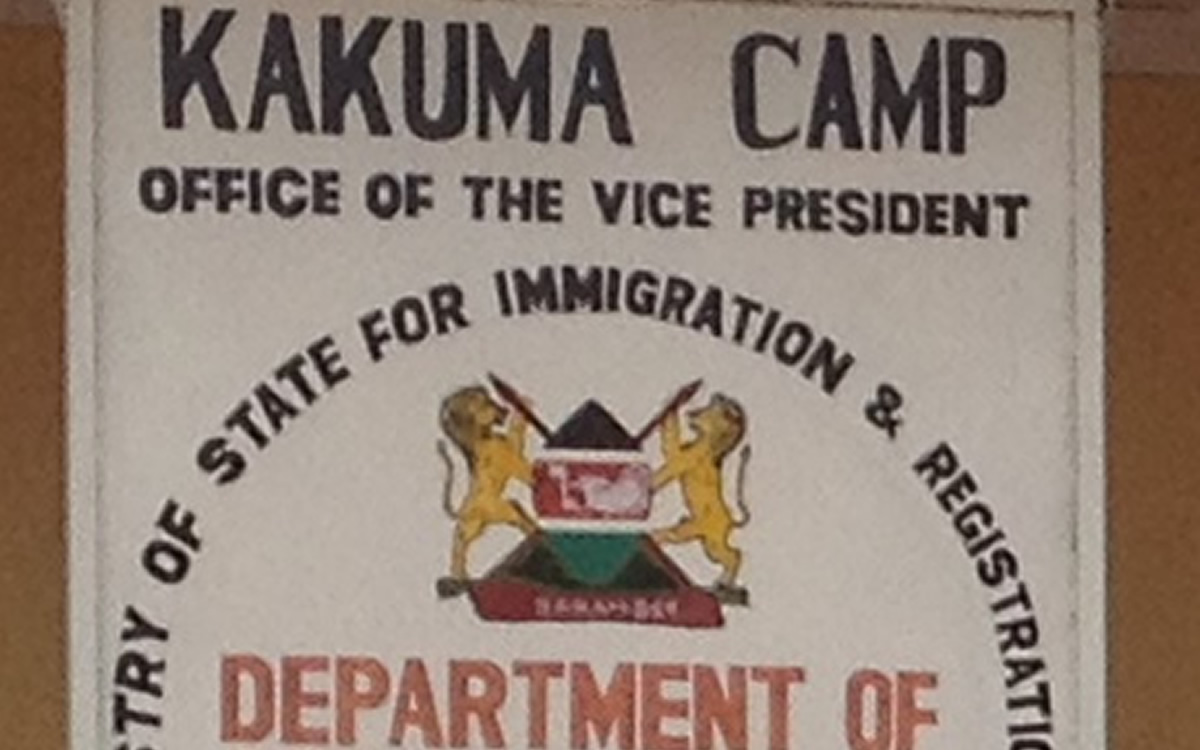
I never imagined that fleeing my own country would not free me from fear. Yet, when I left Uganda, the place of my birth, my memories, and the source of both joy and pain I believed that the hardest part of my journey was behind me. I was wrong.
I had lived under the weight of persecution, where being queer was not only condemned but criminalized by laws and reinforced by the religious and cultural doctrines that shaped daily life. Every glance, every whispered insult, every hushed conversation reminded me that the very core of who I am was treated as a threat. In the end, I had no choice but to flee.
I arrived at Kakuma Refugee Camp in northern Kenya with hope in my heart, imagining that safety and relative freedom awaited me. Kakuma is one of Africa’s largest camps, home to hundreds of thousands displaced by conflict across the region. But what I found was a different kind of cage: the cage of silence. The fear I carried from Uganda followed me, threading itself into my interactions, my movements, my very breath. “You cannot say who you are,” a fellow refugee whispered one night as we huddled in the corner of a tent. “Even the walls have ears.”
For LGBTQI+ refugees across East Africa, silence is often the only shield against violence. But silence is also a heavy burden. In Kakuma, Malawi’s Dzaleka Camp, and Zambia’s Meheba settlement, we live in a constant negotiation between visibility and invisibility, between survival and authenticity. The promise of freedom is only partial; the moment you speak your truth, the risk of reprisal is real from fellow refugees, from camp authorities, and from the broader legal and social systems that criminalize us.
Freedom of speech is not merely the right to speak about politics; for us, it is the right to exist openly, to report threats, to seek help when we are attacked, and to be acknowledged as human. But in countries where same-sex relations are criminalized, even reporting a threat can become an act of extreme risk. Arrest. Deportation. Beaten for daring to ask for safety. Silence, then, becomes both our protection and our punishment.
In Kakuma, I have seen friends beaten for holding hands with someone of the same sex, harassed for wearing clothing that did not “fit” traditional gender expectations, and denied essential aid because our identities are deemed illegitimate. We are told to stay quiet, to blend in, to survive in shadows. And yet, survival in silence is a constant reminder that our rights exist only on paper.
The tension between hope and hostility is a daily reality. Humanitarian organizations like UNHCR and NGOs such as ORAM and Rainbow Railroad provide critical interventions, but safe spaces are limited and often inaccessible. Even interpreters people meant to help us navigate the bureaucracy of aid can inadvertently “out” us, putting lives at risk. Attempts at advocacy, such as peaceful marches within camps, are met with hostility, detention, or social ostracism.
Malawi and Zambia offer a similar narrative, albeit in different hues. In Dzaleka Camp, Malawi, LGBTQI+ refugees live largely underground, avoiding clinics or services for fear of ridicule or exposure. Even when protections are formally recognized, they are often overridden by national laws or local social norms. In Zambia, settlements like Meheba and Mantapala host tens of thousands of refugees, but restrictive legal frameworks and growing public hostility force many queer individuals to remain silent, invisible, and isolated.
Silence carries a cost far beyond fear of immediate violence. It fosters isolation, anxiety, and depression. It limits access to justice, healthcare, and advocacy. When we cannot speak openly, misinformation and stigma flourish. The very systems meant to protect us in camps, NGOs, and legal frameworks often fail to bridge the gap between policy and practice.
Yet, even within these constraints, resilience thrives. I have witnessed extraordinary courage: small networks of LGBTQI+ refugees who create discreet support groups, online networks that allow us to share information safely, and local NGOs that quietly provide legal aid and mental health support. Technology, especially encrypted communication tools, has become our lifeline. Even if we cannot speak openly in our physical spaces, our voices travel through digital networks, connecting us with allies and advocacy channels across the globe.
I think of Musa, a bisexual refugee from the Democratic Republic of Congo, who once told me, “Even if we can’t speak loudly here, we can be heard somewhere.” Those words linger, reminding me that freedom of speech is not just about talking it is about being acknowledged, being safe, and being human.
International organizations are slowly recognizing these realities. UNHCR’s 2024 Global Appeal emphasizes the need for safe spaces, community outreach, and equitable access to protection for LGBTQI+ refugees. Yet, progress remains uneven. Governments and donors must move beyond statements to tangible actions: confidential reporting channels, SOGIESC-sensitive training for camp staff and interpreters, funding for refugee-led initiatives, and legal reforms that at least protect asylum seekers under international protection.
Writing this from Gorom Refugee Settlement in South Sudan, I reflect on the journey I have taken from Uganda’s shadows of persecution, through Kakuma’s labyrinth of fear, to this temporary space of relative safety. I still carry the echoes of enforced silence, the whispers of caution, and the weight of being invisible. But I also carry hope, solidarity, and the knowledge that even small acts of courage ripple outward.
I write not just for myself, but for every queer refugee silenced by fear, for every friend who cannot report an assault, who cannot access medical care, who cannot simply say, “I am here. I am human. I exist.” Freedom of speech is more than words; it is the right to live authentically and safely. Every whispered story, every cautious disclosure, is a testament to our humanity and our resilience.
I did not come to Kakuma, or to any camp, to be a hero. I came to survive. I came to live. And I continue to write in shadows, in whispers, and now, finally, in a voice that reaches beyond the walls of fear. One day, I hope, we will no longer have to whisper. We will be able to speak, freely, openly, and safely. Until then, every word I write is a small act of defiance, a claim to my right to exist, and a reminder to the world that legal protection means little without the freedom to claim it.
Abrina lives in the Gorom Refugee Camp in South Sudan.


